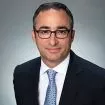- with readers working within the Media & Information and Pharmaceuticals & BioTech industries
- within Immigration, Criminal Law and Cannabis & Hemp topic(s)
California Governor Gavin Newsom signed Senate Bill (SB) 351 into law on October 6, 2025, codifying certain elements of the state's restrictions on the corporate practice of medicine (CPOM) and corporate practice of dentistry (CPOD). Although the restrictions have not been specifically codified in statutes previously, they do not represent significant expansions of the state's already strong CPOM and CPOD regimes. Instead, the new law largely codifies existing law. SB 351, like Assembly Bill (AB) 1415, which Governor Newsom has until October 12 to veto or approve, incorporates key parts of AB 3129, which Governor Newsom vetoed last year.
SB 351 Codifies California's Current Corporate Practice Restrictions for Some MSOs
California has some of the country's strongest and most actively enforced corporate practice restrictions, which are legal prohibitions preventing unlicensed individuals and entities from owning professional practices, employing licensed healthcare providers, and otherwise influencing licensed practitioners' clinical judgment. State statutes, like the Medical Practice Act and Dental Practice Act, establish broad prohibitions that have been adapted and interpreted over time through rulemaking and enforcement by agencies such as the Medical Board of California and the Dental Board of California, case law, and advisory opinions from the California attorney general (AG).
SB 351 expressly prohibits certain types of unlicensed entities, namely hedge funds, private equity groups, management services organizations (MSOs), and other entities they directly control (collectively, restricted investors), from engaging in specific activities in connection with physician and dental practices. Previously, such corporate practice restrictions may have been articulated in court opinions or agency guidance rather than state statutes. SB 351 limits restricted investors in three areas:
- Restricted investors will be prohibited from interfering with the professional judgment of physicians or dentists in making healthcare decisions. Such interference includes determining what diagnostic tests are appropriate, determining the need for referrals, and establishing hours or patient visit requirements for providers.
- Restricted investors will be prohibited from owning medical records, making certain employment decisions regarding clinical personnel, establishing parameters that control third-party payer contracting and engagement of licensed providers, making coding and billing decisions, and approving medical equipment and supply selections for a practice. The new law explicitly states, however, that it does not restrict an “unlicensed person or entity from assisting, or consulting with, a physician or dental practice” in connection with such decisions and activities “provided that the physician or dentist retains the ultimate responsibility for, or approval of, those decisions and activities.”
- SB 351 prohibits certain noncompete and non-disparagement restrictions in management services contracts and real estate or other asset purchase agreements between physician or dental practices, on the one hand, and restricted investors, on the other. The bill does not prohibit an “otherwise enforceable sale of business noncompete agreement” (i.e., one that is permissible under the sale of business exception to California's general prohibition on noncompete restrictions); the extent to which the exception applies in a given MSO transaction should be discussed on a case-by-case basis with a Goodwin lawyer. The bill also does not prohibit a covenant that restricts a dentist or physician from providing management services to, or having an ownership interest in, another MSO.
SB 351 also provides that the California AG “shall be entitled to injunctive relief and other equitable remedies a court deems appropriate for enforcement” of its requirements “and shall be entitled to recover attorney's fees and costs incurred in remedying any violation.”
SB 351 Is Substantively Similar to AB 3129 but Is Not a Clear Expansion of CPOM or CPOD
SB 351's restrictions on private equity groups and hedge funds are nearly identical to certain provisions in AB 3129, which Governor Newsom vetoed in 2024. Governor Newsom did not specifically comment on the corporate practice restrictions in AB 3129; he instead criticized the bill's healthcare market oversight provisions as duplicative of an existing mechanism for achieving the same goal. SB 351 effectively isolates AB 3129's corporate practice restrictions from that bill's more controversial market oversight provisions. Practically speaking, SB 351 does not create significant uncertainty for investors or represent an expansion of California's existing CPOM or CPOD regimes. To be sure, private equity– and hedge fund–backed MSOs should carefully review their MSO agreements and operations with a Goodwin lawyer to ensure compliance with the new law. However, given the state's already extensive and actively enforced corporate practice restrictions, SB 351 neither clearly establishes new prohibitions on investor conduct nor ensures additional scrutiny of healthcare arrangements.
The content of this article is intended to provide a general guide to the subject matter. Specialist advice should be sought about your specific circumstances.
[View Source]




